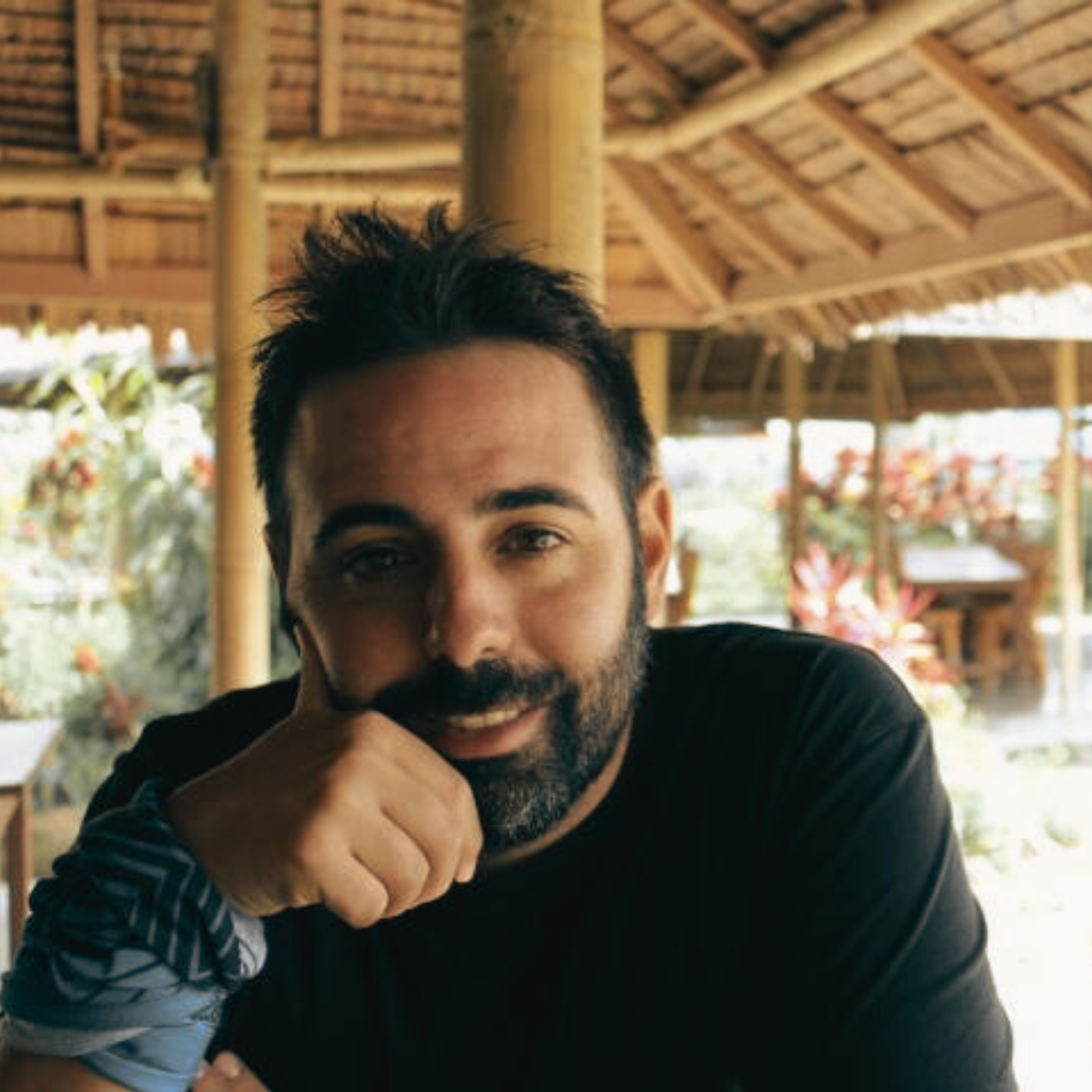
Francisco J. Pozuelos
Searching for
About
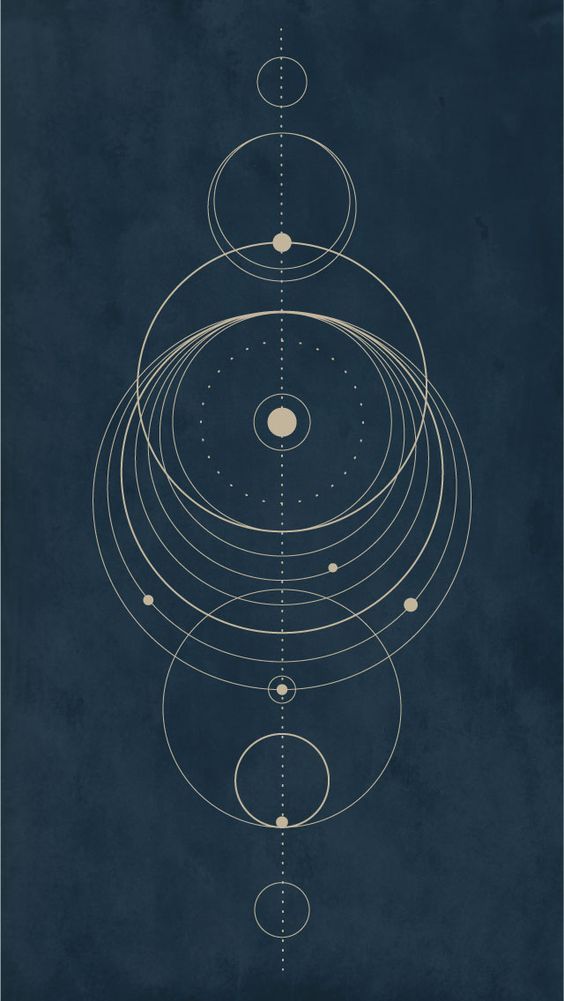
Tenured Scientist
- Affiliation: Instituto de Astrofísica de Andalucía (IAA-CSIC)
- Department: Stellar Physics
- Research Group: Low-mass stars, Exoplanets & Instrumentation
- City-Country: Granada-Spain
- Email: pozuelos@iaa.csic.es
I earned my degree in Physical Sciences from the University of Seville, and in 2010, I began my PhD at the Instituto de Astrofísica de Andalucía (IAA-CSIC). During that time, I researched minor bodies in the Solar System (comets and asteroids), focusing on understanding how comet tails form and evolve and their relationship with their dynamic history. These objects are fascinating because they are considered time capsules; they have undergone very few changes throughout their existence and provide us with valuable information about what the Solar System was like in its earliest stages and how it has evolved into its current architecture. I completed my PhD in 2014 and spent two years as a postdoctoral researcher between the IAA-CSIC and the University of Granada when I developed a strong interest in exoplanets. During this time, I had the opportunity to spend a period as a visiting researcher at the German Aerospace Agency (DLR-Berlin), where the PLATO mission, aimed at searching for Earth-twins planets in the near future, is being led. In 2016, I was awarded with a Marie Skłodowska-Curie (BeIPD) postdoctoral fellowship, which allowed me to join the TRAPPIST research team at the University of Liege in Belgium. Although I initially continued researching comets and asteroids, I soon focused my efforts exclusively on the study of exoplanets, joining the SPECULOOS team where I had the opportunity to work with various space missions such as Kepler, TESS, and CHEOPS. In early 2023, I returned to the IAA-CSIC in Granada to continue working in this exciting field of research with a permanent position. I joined the CARMENES team and became the Project Scientist of the Photonic EMARCOT project.
Resume
Here, I provide a non-exhaustive overview of my CV, offering a general insight into my previous experience and academic journey.
Current Position
Tenured Scientist
Since 2023
Instituto de Astrofísica de Andalucía (IAA-CSIC)
Researcher specialized in the search for exoplanets and their characterization using ground- and space-based missions through the transit photometry and the radial velocity methods.
- Project Scientist of Photonic EMARCOT
Education
PhD in Physics and Mathematics
2014
IAA-CSIC & University of Granada, Spain
Monte Carlo Models of the Dust Environment of a Sample of Comets from the Oort Cloud to the Outer Main Asteroid Belt (Supervised by Dr. Fernando Moreno)
Funded by Junta de Andalucía Excellence Fellowship
Master's degree in Physics and Mathematics
2011
University of Granada, Spain
Dust Environment of Comet 81P/Wild 2 (Supervised by Dr. Fernando Moreno)
Bachelor of Physics
2009
University of Seville, Spain
Specialization in Fundamental Physics
Professional Experience
BELSPO Postdoctoral Researcher
2021-2022
University of Liege, Belgium. Hosted by Dr. Valerie Van Grootel
- CHEOPS data explotation to explore SdB stars
- FATE Project co-coordinator
FNRS Postdoctoral Researcher
2019 - 2020
University of Liege, Belgium. Hosted by Prof. Michael Gillon
- SPECULOOS-TESS Synergy working group leader
- Exo-TRAPPIST program coordinator
Marie Skłodowska-Curie (BeIPD) Postdoctoral Fellow
2017 - 2018
University of Liege, Belgium. Hosted by Prof. Emmanuel Jehin
- Study of bright comets using the TRAPPIST telescope network
Postdoctoral Researcher
2016
University of Granada, Spain. Hosted by Dr. Juan C. Suárez-Yanes
- Dynamical studies of planetary systems in the context of PLATO mission
Jose Castillejo Postdoctoral Visinting Fellow
2015
Deutsches Zentrum für Luft- und Raumfahrt (DLR-Berlin), Germany. Hosted by Dr. Juan Cabrera & Prof. Heike Rauer
- Study of close-in exoplanets affected by tides
Postdoctoral Excellence Fellow
2015
Instituto de Astrofísica de Andalucía (IAA-CSIC). Hosted by Dr. Fernando Moreno
- Activation of main-belt comets driven by water ice sublimation
Relevant Publications
Here are some of my most significant scientific results in the recent years. If you would like to access to my full record of publications click in the "ads" icon.
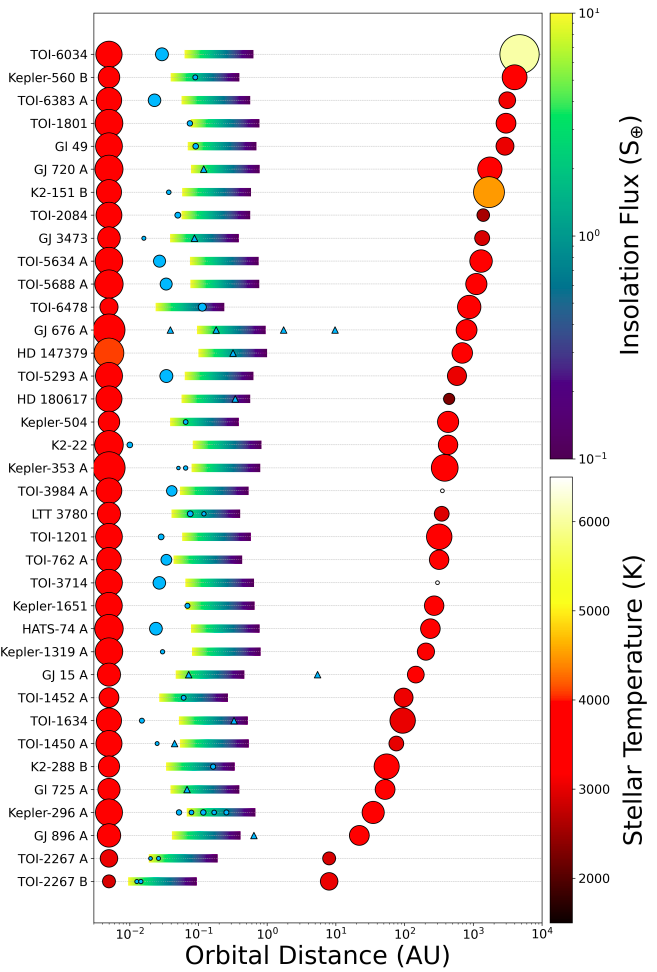
Two warm Earth-sized exoplanets and an Earth-sized candidate in the M5V-M6V binary system TOI-2267
Authors: Zúñiga-Fernández & Pozuelos, et al. (2025)
Journal: Astronomy & Astrophysics, Volume 702, id.A85, 30 pp
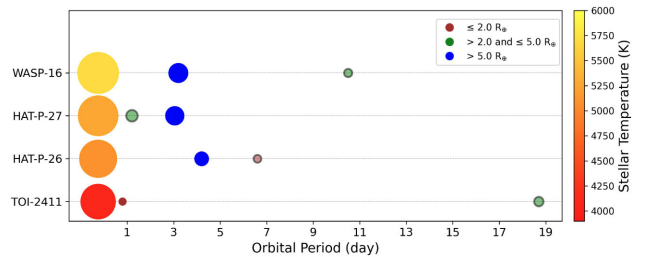
The SHERLOCK pipeline: new exoplanet candidates in the WASP-16, HAT-P-27, HAT-P-26, and TOI-2411 systems
Authors: Dévora-Pajares & Pozuelos, et al. (2024)
Journal: Monthly Notices of the Royal Astronomical Society, Volume 532, Issue 4, pp.4752-4773
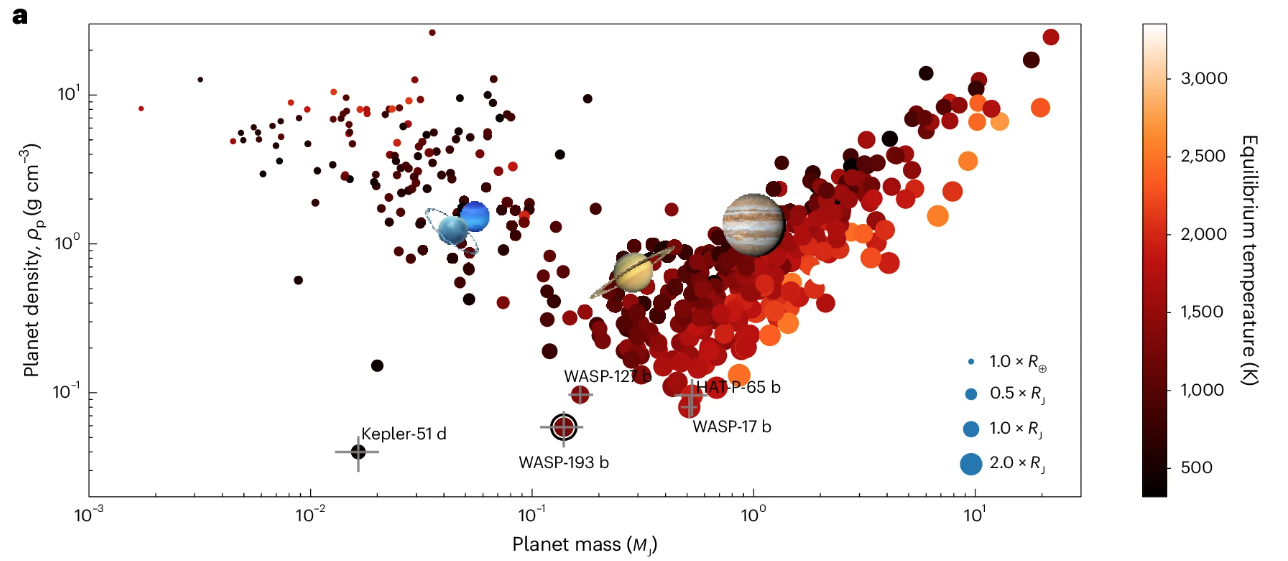
An extended low-density atmosphere around the Jupiter-sized planet WASP-193 b
Authors: Barkaoui & Pozuelos, et al. (2024)
Journal: Nature Astronomy, Volume 8, Pages 909-919

A super-Earth and a mini-Neptune near the 2:1 MMR straddling the radius valley around the nearby mid-M dwarf TOI-2096
Authors: Pozuelos, Timmermans, et al. (2023)
Journal: Astronomy & Astrophysics, Volume 672, id.A70, 25 pp
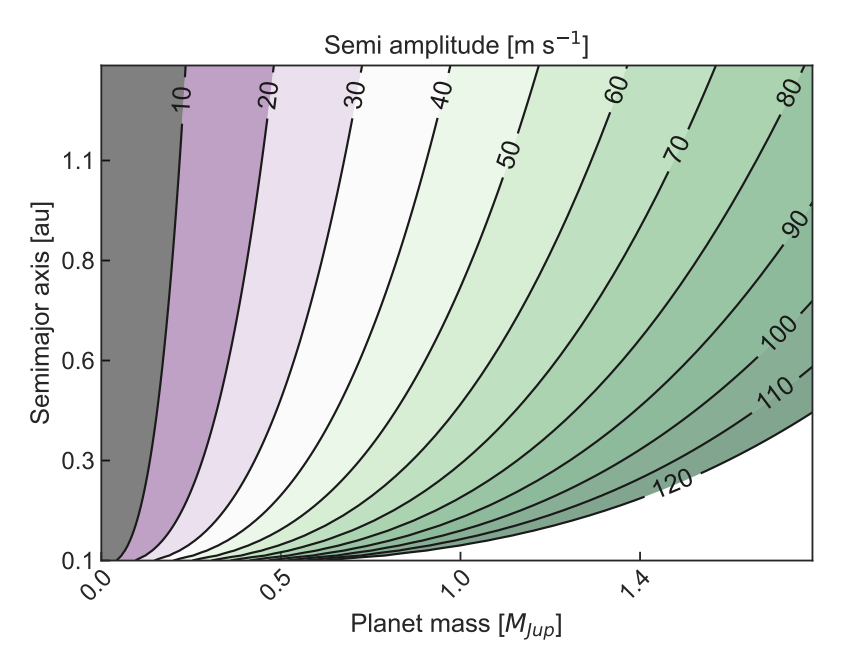
TOI-2257 b: A highly eccentric long-period sub-Neptune transiting a nearby M dwarf
Authors: Schanche, Pozuelos, et al. (2022)
Journal: Astronomy & Astrophysics, Volume 657, id.A45, 18 pp
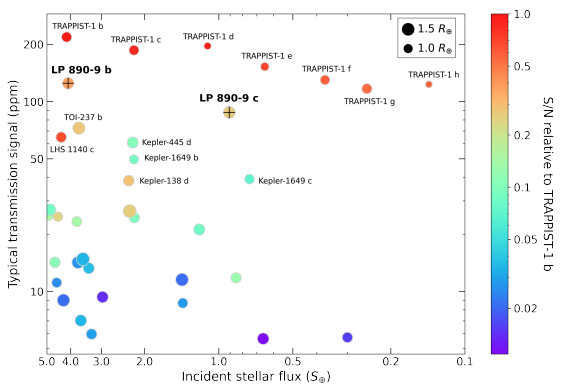
Two temperate super-Earths transiting a nearby late-type M dwarf
Authors: Delrez, Murray, Pozuelos, et al. (2022)
Journal: Astronomy & Astrophysics, Volume 650, id.A205, 19 pp
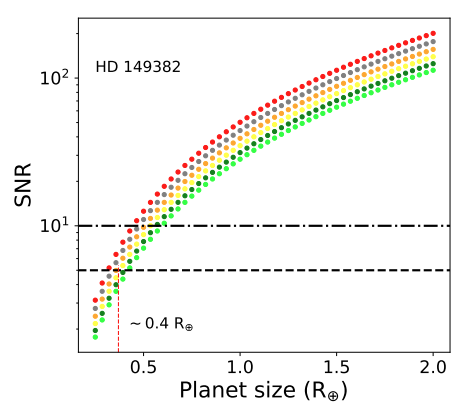
A search for transiting planets around hot subdwarfs. I. Methods and performance tests on light curves from Kepler, K2, TESS, and CHEOPS
Authors: Van Grootel, Pozuelos, et al. (2021)
Journal: Astronomy & Astrophysics, Volume 650, id.A205, 19 pp
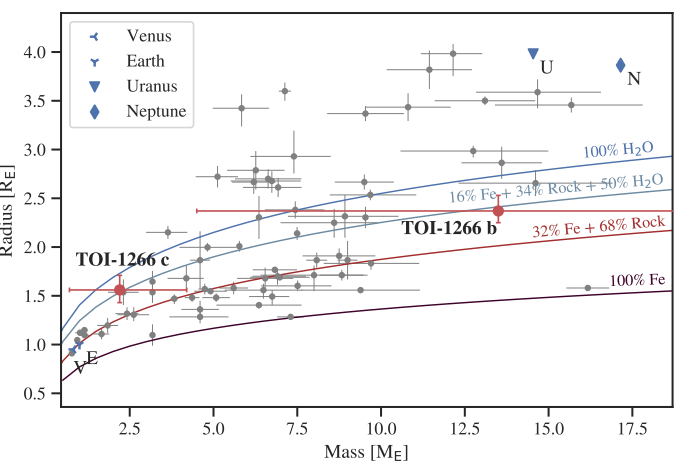
A super-Earth and a sub-Neptune orbiting the bright, quiet M3 dwarf TOI-1266
Authors: Demory, Pozuelos, et al. (2020)
Journal: Astronomy & Astrophysics, Volume 667, id.A59, 31 pp
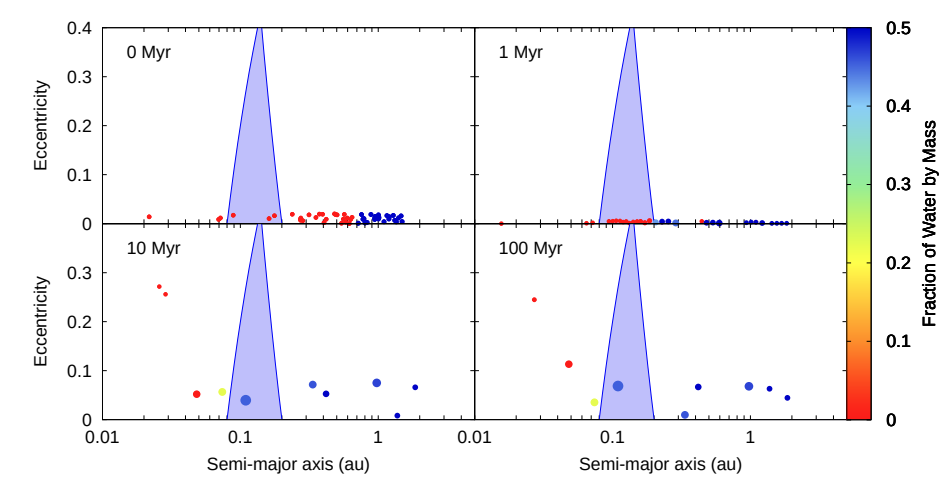
GJ 273: on the formation, dynamical evolution, and habitability of a planetary system hosted by an M dwarf at 3.75 parsec
Authors: Pozuelos, Suárez et al. (2020)
Journal: Astronomy & Astrophysics, Volume 641, id.A23, 19 pp
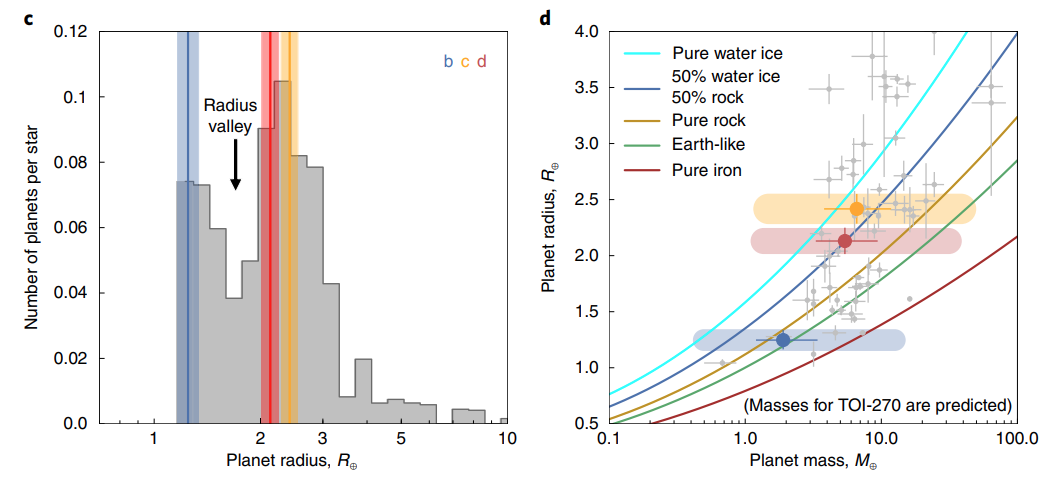
A super-Earth and two sub-Neptunes transiting the nearby and quiet M dwarf TOI-270
Authors: Gunther, Pozuelos et al. (2019)
Journal: Nature Astronomy, Volume 3, p. 1099-1108
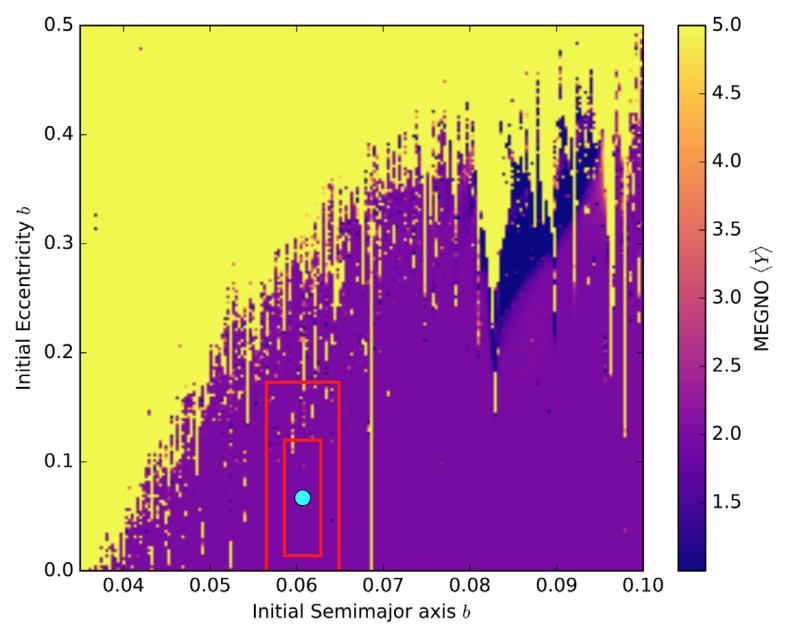
GJ 357: a low-mass planetary system uncovered by precision radial velocities and dynamical simulations
Authors: Jenkins, Pozuelos et al. (2019)
Journal: Monthly Notices of the Royal Astronomical Society, Volume 490, Issue 4, p.5585-5595
Conferences and Workshops
I have participated in over 30 national and international conferences, contributing with both oral presentations and posters. In addition, I have (co-)organized various workshops and conferences in the fields of astrophysics and exoplanets. Below is a list of these events, with links to further details for each.
- Photonic E-MARCOT: A new concept for a large-aperture telescope. Design, science cases, and impact
Chair, SOC & LOC| Granada-Spain, November 2025| 50| Hybrid format| Funded by the RIA (Red de Infraestructuras de Astronomía de España)
- EPSC-DPS Joint Meeting 2025 (EPSC-DPS 2025)
SOC (EXOA Panel)| Helsinki-Finland, September 2025| 1800| Hybrid format
- Expanding the Role of Photonic Technologies on Extremely Precise Radial Velocities
Splinter Session Organizer at EPRV6| Porto-Portugal, July 2025| ~50 (speakers+attendees)| Hybrid format
- PySnack 10: PROSE (Imparted by Dr. Lionel García)
SOC| Granada-Spain, December 2024| ~25 (speakers+attendees)| Hybrid format
- PySnack 9: GASTLI (Imparted by Dr. Lorena Acuña)
SOC| Granada-Spain, December 2024| ~25 (speakers+attendees)| Hybrid format
- Europlanet Science Congress (EPSC 2024)
SOC (EXOA Panel)| Berlin-Germany, September 2024| ~1200 participants (speakers+attendees)| Hybrid format
- Towards a better understanding of planets' and planetary systems' diversity (EXOA1-EPSC2024)
Convener| Berlin-Germany, September 2024| ~100 participants (speakers+attendees)| On-site format
- PySnack 4: the SHERLOCK pipeline
SOC+presenter| Granada-Spain, June 2023 | ~25 (speakers+attendees) | On-line format
- Towards a better understanding planets and planetary systems diversity (EXOA9-EPSC2022)
Convener| Granada-Spain, September 2022 | ~100 (speakers+attendees) | On-site format
- 10th Meeting on Hot Subdwarfs and Related Objects
Co-Chair, SOC & LOC| Liège-Belgium, June 2022 | ~120 (speakers+attendees) | On-site format
- Exoplanets Orbits & Dynamics
Co-Chair, SOC & LOC| Liège-Belgium, January 2021 | ~85 (speakers+attendees) | On-line format
- TRAPPIST-1 Conference
LOC| Liège-Belgium, June 2019 | ~100 (speakers+attendees) | On-site format
- IV Reunión sobre Ciencias Planetarias y Exploración del Sistema Solar (CPESS4)
LOC| Alicante-Spain, June 2015 | ~50 (speakers+attendees) | On-site format
Students
Here is a list of the students I have supervised over the years, categorized by degree level. I am deeply committed to guiding and mentoring young researchers and helping them acquire essential coding, data analysis, and general physics skills. In addition, I emphasize the importance of critical thinking, effective communication, and collaborative teamwork, ensuring they are well-rounded and capable of thriving in diverse research environments. My goal is to equip them with a comprehensive skill set that allows them to succeed as independent scientists and active contributors to the scientific community.
PhD Students
- Martín Dévora-Pajares: "Application of machine learning techniques in the processing of space mission data for the detection and characterization of exoplanet candidates" (University of Granada, Co-supervised with Dr. Juan Carlos Suárez-Yanes; 2021-2026)
- Antoine Thuillier: "Planets around SdB stars" (University of Liege, Co-supervised with Dr. Valerie Van Grootel and Dr. Lionel Siess; 2021-2026)
- Roberto Varas: "CARMENES-PLUS: a technical upgrade for CARMENES and its scientific exploitation " (Instituto de Astrofísica de Andalucía-CSIC, Co-supervised with Dr. Pedro J. Amado; 2022-2026)
Official Master's Theses & Traineeships Supervised
- David Moreno Pérez "Searching for nearby habitable exoplanets: contribution to the SPECULOOS project" (Master's Thesis & JAE-Intro ICU, IAA-CSIC, 2025)
- Paola López Castelo "Search for exoplanets using Shannon entropy" (Master's Thesis, University of Granada, 2025, Co-supervised with Dr. Juan Carlos Suárez-Yanes)
- Daniel Grana Ramos "Searching for Earth-sized exoplanets in TESS data" (JAE-Intro, IAA-CSIC, 2024)
- Manuel Peralta Fuentes "Water worlds or super-Earths? Characterizing mini-Neptunes to break planetary formation degeneracies" (JAE-Intro ICU, IAA-CSIC, 2024)
- Mathieu Motte "Research of survivor planets around subdwarfs" (Master's Thesis, University of Liege, 2023, Co-supervised with Dr. Valerie Van Grootel)
- Cyril Dethye "The fate of planetary systems" (Master's Thesis, University of Liege, 2023, Co-supervised with Dr. Valerie Van Grootel)
- Magali Limpens "Searching for unnoticed planetary systems around very late M stars in TESS data" (Master's Thesis, University of Liege, 2023, Co-supervised with Dr. Laetitia Delrez)
- Carlos Corral Van Damme "Searching for nearby multi-planetary systems in TESS data" (Master's Thesis, International University of Valencia, 2023)
- Romane Delguste "Searching for new multi-planetary systems to be observed with CHEOPS" (Master's Thesis, University of Liege, 2022, Co-supervised with Dr. Laetitia Delrez)
- Sergio Miguel González Gutiérrez "Ground-based confirmation of Hot-Jupiters candidates detected by the TESS mission" (Master's Thesis, International University of Valencia, 2021)
- Winston Andrés Rocher Aranda "Ground-based confirmation of Super Earths detected by the TESS mission" (Master's Thesis, International University of Valencia, 2021)
- Lionel Delsupexhe "How and where to find super-habitable exoplanets" (Master's Thesis, University of Liege, 2021)
- Niels Fardeau "Detection of transiting exoplanets around sdb stars from space-based, long cadence, full frame images" (Master's Thesis, University of Liege & École Central Lyon, 2021, Co-supervised with Dr. Valerie Van Grootel)
- Emilio Lapeña Padilla "A dynamical approach to unveil the nature of carbon-depleted Jupiter Family Comets" (Master's Thesis, International University of Valencia, 2020)
- Carlos Barciela Ceballos "Super-habitable Planets" (Master's Thesis, International University of Valencia, 2020)
- Martín Dévora-Pajares "Identification of new exoplanet candidates from low SNR signals within space-based missions data" (Master's Thesis, International University of Valencia, 2020)
- Antoine Thuillier "Do planets or their remnants survive after the first red giant phase of their host star?" (Master's Thesis, University of Liege, 2020, Co-supervised with Dr. Valerie Van Grootel)
- Pablo Rodríguez Llorca "Unveiling the real nature of planetary systems" (Master's Thesis, International University of Valencia, 2019)
- Francisco José García Izquierdo "Habitability of confirmed exoplanetary systems" (Master's Thesis, University of Granada, 2019, Co-supervised with Dr. Juan Carlos Suárez-Yanes)
- Eduard Pérez Gómezs "Characterization of transiting exoplanets" (Master's Thesis, International University of Valencia, 2018, Co-supervised with Dr. Juan Carlos Suárez-Yanes)
- Antonio A. Luque Tomás "Watering process during formation of planetary systems" (Master's Thesis, International University of Valencia, 2017, Co-supervised with Dr. Juan Carlos Suárez-Yanes)
- Juan A. Delgado Sanchez "Influence of stellar evolution on planetary habitability" (Master's Thesis, University of Granada, 2016, Co-supervised with Dr. Juan Carlos Suárez-Yanes)
Textbook

Exoplanetas y Astrobiología
International University of Valencia, 2023 (ISBN: 978-84-19314-86-4)
This textbook on exoplanets and astrobiology is part of the Astronomy and Astrophysics official master’s program at the International University of Valencia, which annually serves about 100 students. Building on a previous version by Prof. Ignasi Ribas (2010), it is designed for students with a foundation in mathematics, physics, and astronomy. The book explores essential topics in planetary science, including exoplanet detection methods, planetary formation models, habitability, and the search for life beyond Earth. It provides a comprehensive overview of these key concepts to guide readers through one of the most dynamic fields in astronomy.
PhD & JAE-Intro Days
Since 2024, I organize a yearly event called PhD & JAE-Intro Days, where the youngest members of our institute —including PhD students and JAE-Intro fellows— have the opportunity to present their ongoing research projects. This event aims to foster collaboration, encourage scientific dialogue, and give visibility to emerging talent within the IAA-CSIC.
- 2024 Edition: Granada, May 13-15. ~70 participants (speakers+attendees).
- 2025 Edition: Granada, June 5-6. ~70 participants (speakers+attendees).
Hosted Researchers
As part of my commitment to fostering scientific excellence and innovation within our group, I have hosted and collaborated with researchers who bring new expertise and complementary research lines. These collaborations aim to expand our capabilities, strengthen international ties, and enhance the scientific output of our institute. If you have a research idea you would like to develop in collaboration with our group, feel free to get in touch — we are always open to exploring potential synergies and new directions together. Research stays typically last between one and three months and, in many cases, can be supported by internal funding through our ongoing Severo Ochoa Center of Excellence project.
- Lorena Acuña (2024): Postdoctoral researcher from the Max Planck Institute for Astronomy (MPIA), where she worked with Prof. Laura Kreidberg. Her project focused on developing machine learning tools for fast and accurate interior composition retrievals of exoplanets using mass and radius data. This work leveraged advanced neural networks such as ExoMDN and plaNETic, trained on synthetic grids from the GASTLI model, with applications to CHEOPS, TESS, and JWST. This visit was funded by the Hypatia Incoming Visiting Grant under the Severo Ochoa Programme. Download project summary (PDF)
- Leonardos Gkouvelis (2024): Senior researcher at the Munich Observatory (LMU) and former NASA Postdoctoral Program fellow. His project focused on modeling the formation and evolution of secondary atmospheres in rocky exoplanets undergoing intense volcanic outgassing during their magma ocean phases. This collaboration laid the foundation for a long-term partnership with Prof. Kevin Heng’s group, with the aim of enhancing observational strategies for future missions such as JWST. This visit was funded by the Incoming Visiting Grant under the Severo Ochoa Programme. Gkouvelis, Pozuelos et al. (2025)
- Bárbara Rojas-Ayala (2025): Associate Professor at the Instituto de Alta Investigación, Universidad de Tarapacá (Chile). During her research stay within the Photonic E-MARCOT framework, we advanced the development of a unified and homogeneous stellar-characterisation pipeline for FGKM dwarf stars, providing reliable and internally consistent stellar parameters (effective temperature, surface gravity, metallicity, radius, mass, age, and rotation period) to support all exoplanet analyses within the project. This effort combines multi-model inference, evolutionary modelling, rotation–age relations, stellar activity indicators, and asteroseismic diagnostics to refine stellar properties, reduce systematic biases in radii and luminosities, and improve the precision of derived planetary radii, densities, and demographic interpretations. The resulting framework strengthens coherence across Photonic E-MARCOT science cases and prepares the team for the exploitation of next-generation missions and facilities. This visit was funded by the i-LINK project "MARCOT-Pathfinder: Science and Technology Development" (Ref.: ILINK24064, IP Francisco J. Pozuelos).
Press Releases
Some of my publications have gathered significant media attention; here, I present a non-exhaustive list of related news, including coverage from various platforms such as television documentaries and debates, radio interviews, podcast coverage and newspapers.
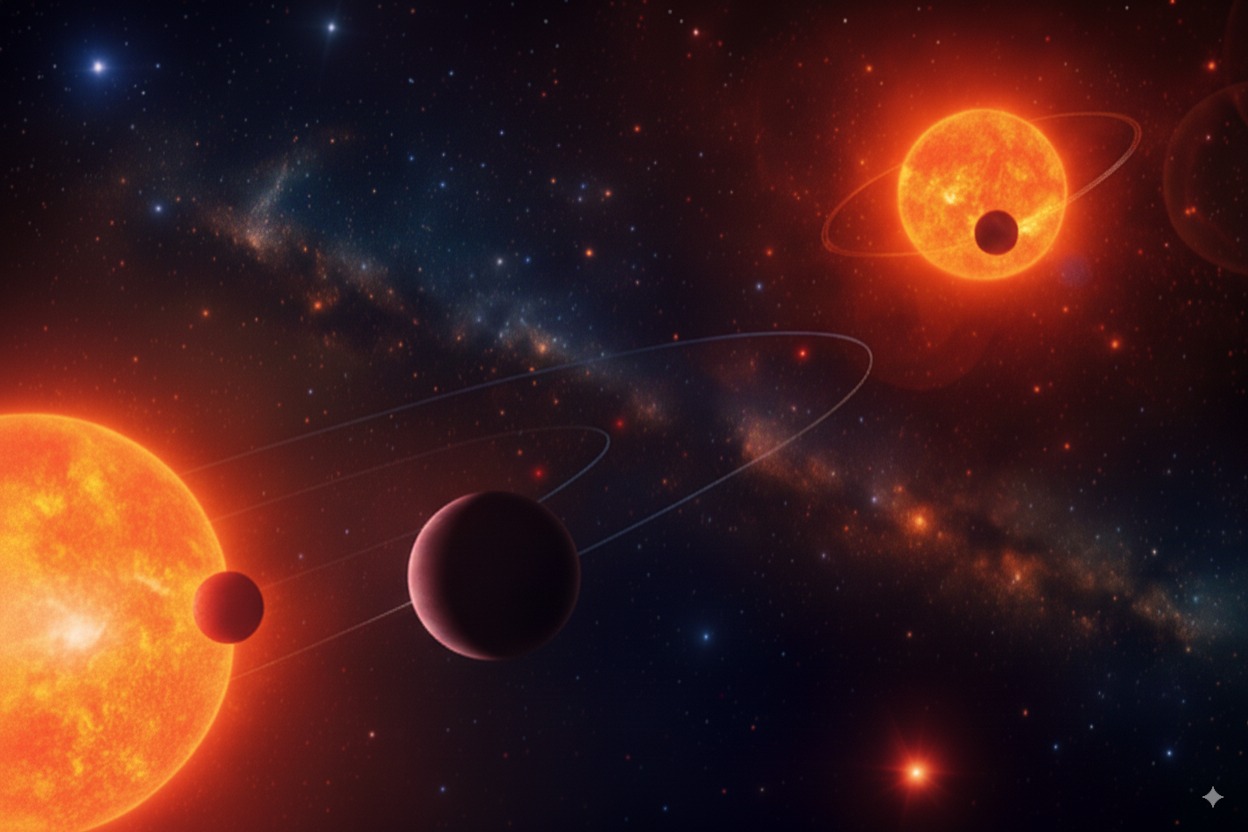
Two warm Earth-sized exoplanets and an Earth-sized candidate in the M5V-M6V binary system TOI-2267
Published in: Astronomy & Astrophysics, 2025

WASP-193b: An extended low-density atmosphere around the Jupiter-sized planet
Published in: Nature Astronomy, 2024
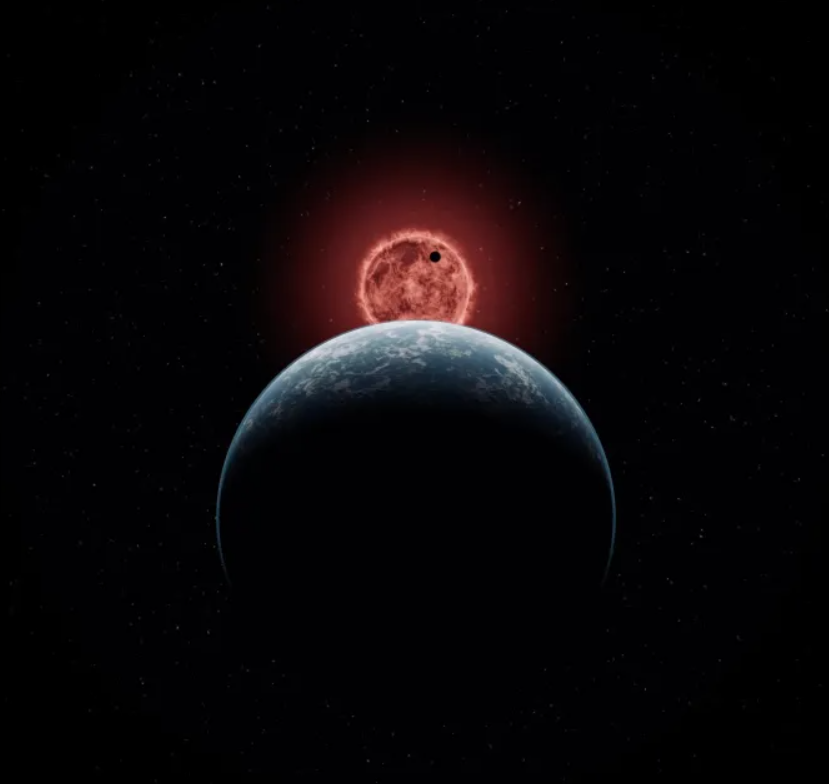
A super-Earth and a mini-Neptune near the 2:1 MMR straddling the radius valley around the nearby mid-M dwarf TOI-2096
Published in: Astronomy & Astrophysics, 2023
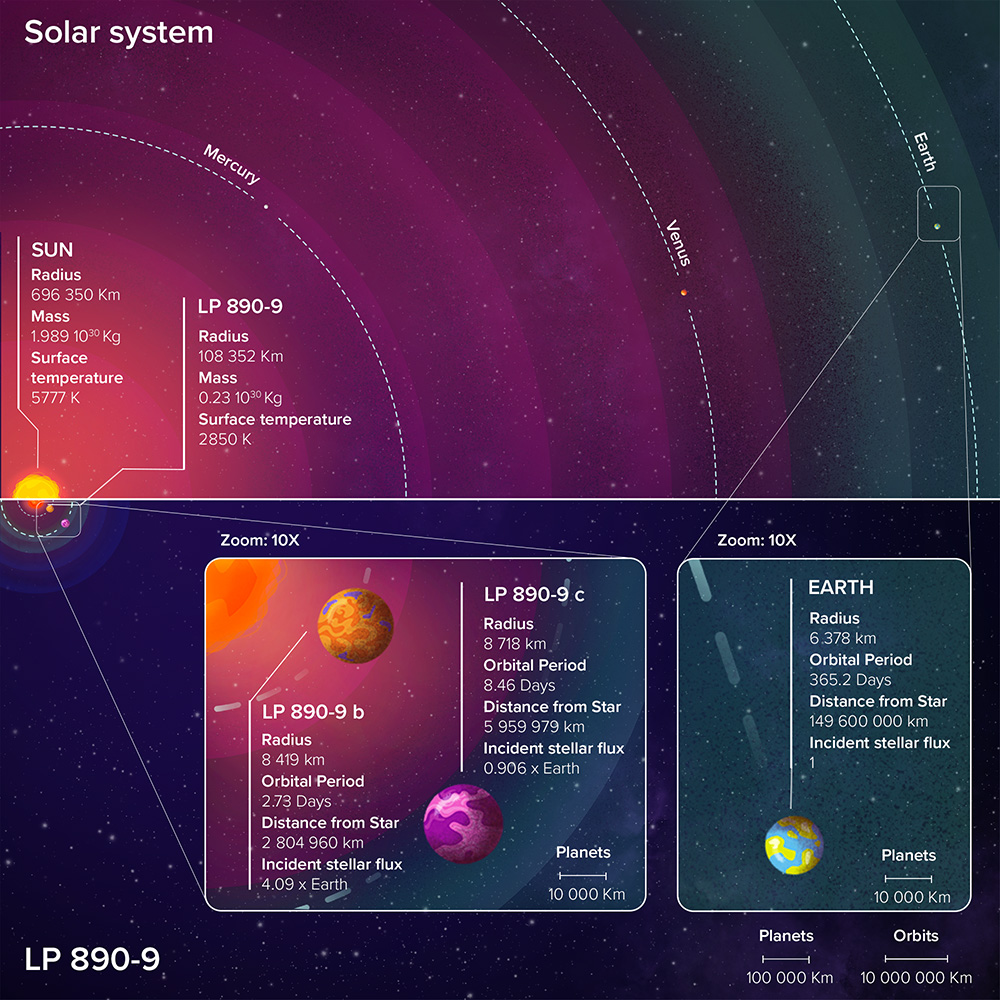
Two temperate super-Earths transiting a nearby late-type M dwarf
Published in: Astronomy & Astrophysics, 2022
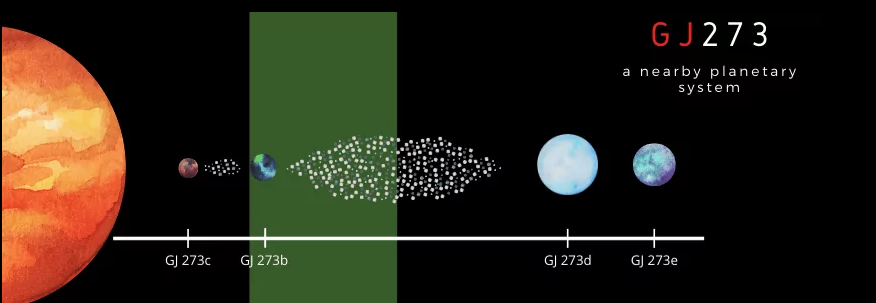
GJ 273: on the formation, dynamical evolution, and habitability of a planetary system hosted by an M dwarf at 3.75 parsec
Published in: Astronomy & Astrophysics, 2020
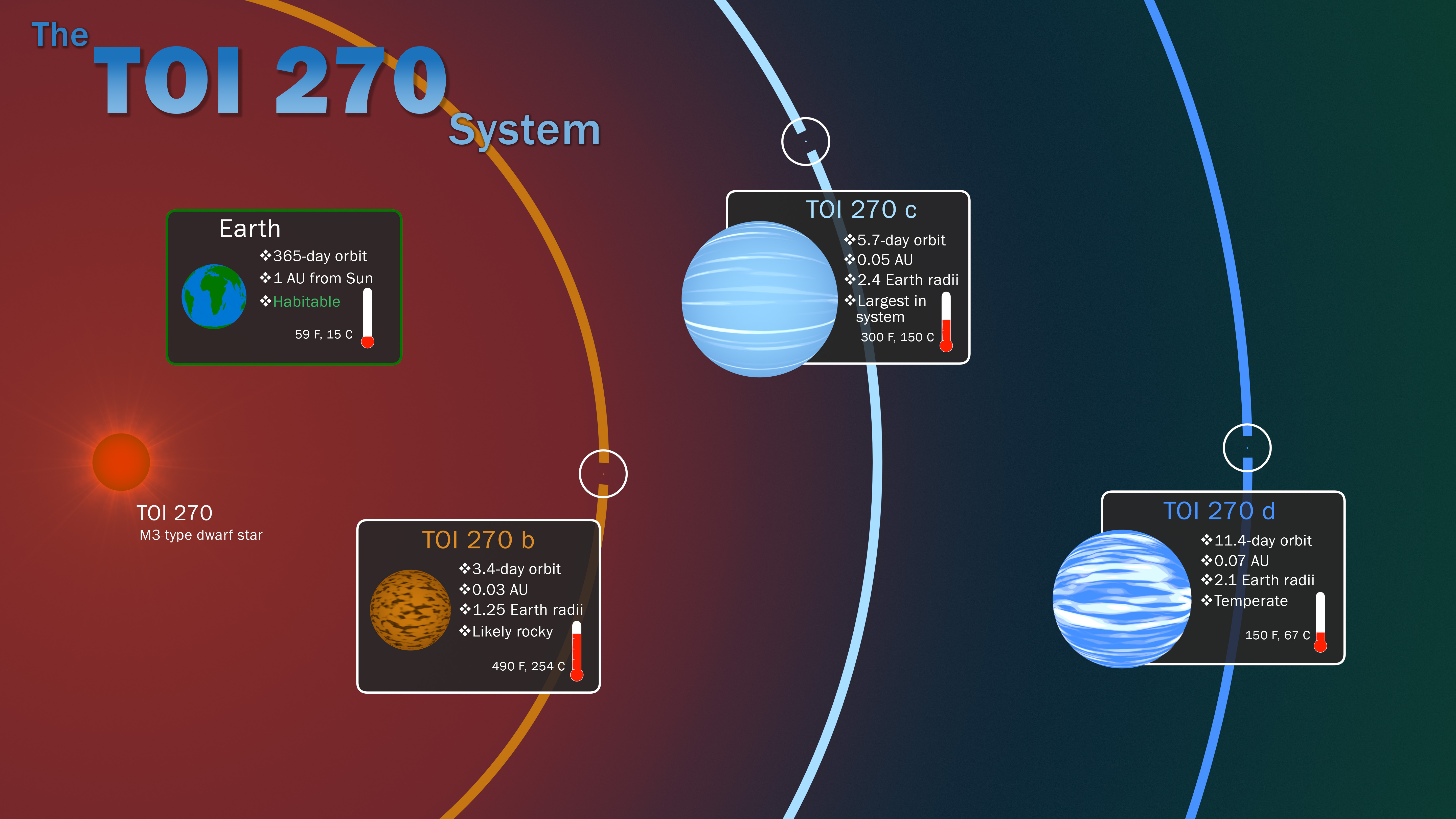
A super-Earth and two sub-Neptunes transiting the nearby and quiet M dwarf TOI-270
Published in: Nature Astronomy, 2019
Services
I contribute to the scientific community through various critical roles, which I describe below. My work in these areas involves providing rigorous, unbiased assessments to ensure high-quality research standards and support advancing innovative scientific projects. I am committed to fostering excellence in research by collaborating with academic institutions, funding bodies, and other key players in the field.
Journal Reviewer
I am a regular reviewer for specialized astrophysics journals, including Nature Astronomy, Monthly Notices of the Royal Astronomical Society (MNRAS), Astronomy & Astrophysics (A&A), most of the American Astronomical Society journals (AAS), and Elsevier, among others. My role involves providing thorough evaluations that ensure scientific rigor and contribute to advancements in the field.
Research Project Evaluation & Scientific Committees
As an evaluator for scientific research projects, I collaborate with international funding agencies to assess and endorse groundbreaking research initiatives. My evaluations contribute to the decision-making processes of institutions such as the Agencia Estatal de Investigación (AEI) in Spain, the NASA Postdoctoral Program (NPP) in USA, and the Agencia Nacional de Promoción de la Investigación, el Desarrollo Tecnológico y la Innovación (I+D+i) in Argentina, along with other regional research agencies in Spain. This role allows me to support the development of innovative projects and drive scientific progress across disciplines and regions. In addition, I am a member of scientific follow-up and quality committees, including the Follow-up and Quality Committee of the MOMENTUM CSIC Programme where I contribute to monitoring scientific progress and ensuring excellence standards.
Thesis Defense Committee Member
I often participate as jury in Master’s and PhD thesis defenses in national and international universities, evaluating the quality, rigor, and contributions of graduate researchers. This role involves providing objective assessments during the defense process, ensuring that scholarly standards are met and that candidates demonstrate a solid understanding and original contribution within their field of study.
PhD Follow-up Committee Member
I participate as a PhD follow-up committee member for several doctoral theses. In this role, I oversee the ongoing advancement of research projects to ensure academic integrity and adherence to research standards. I also ensure that the supervisor-student relationship remains constructive and supportive, stepping in to mediate should any conflicts arise. While not directly involved as a supervisor or defense committee member, I provide independent evaluations throughout the doctoral process to support the research's quality and reliability.
CEBE Association
Since my postdoctoral research period in Belgium, I actively participate in the CEBE (Spanish Scientists in Belgium) association , where I contribute to fostering connections and opportunities for researchers, particularly early career ones. CEBE is a non-profit organization founded by Spanish scientists to serve researchers and science enthusiasts alike. Our mission is to establish a channel where ideas, opinions, and the needs of the scientific community are represented and heard. In my role, I oversee initiatives supporting academic mobility, collaborative projects, and scholarship programs, strengthening ties within the scientific community in Belgium and internationally.
Spanish Time Allocation Committee (CAT)
Since 2025B observational semester, I serve as Vice-Commissioner of the “Estrellas y Planetas” (ESPLA) panel within the Spanish Time Allocation Committee (CAT), which evaluates the scientific merit of proposals submitted for the use of night-time telescopes at the Roque de los Muchachos and Teide Observatories. The CAT meets twice a year and manages telescope time allocation across three scientific panels. The telescopes involved include the GTC, WHT, TNG, INT, NOT, and the Liverpool Telescope at the Roque de los Muchachos Observatory (La Palma), as well as the TCS, IAC80, and OGS telescopes at the Teide Observatory (Tenerife).
Open-Source Software
My commitment to open science is deeply reflected in my approach to software development. The tools and codes I develop are publicly accessible on public repositories, ensuring they serve as valuable resources for the broader scientific community. Open science, particularly in the form of accessible and shareable tools, is a fundamental pillar of my work, fostering collaboration and advancing research through transparency and shared innovation. Here, you can find some of my most used tools. Suggestions and comments are more than welcome to make these tools more efficient and accesible. I am always available and eager to help others learn to use these tools. If you’re interested in learning or need assistance, we can arrange a hands-on session to explore them together!
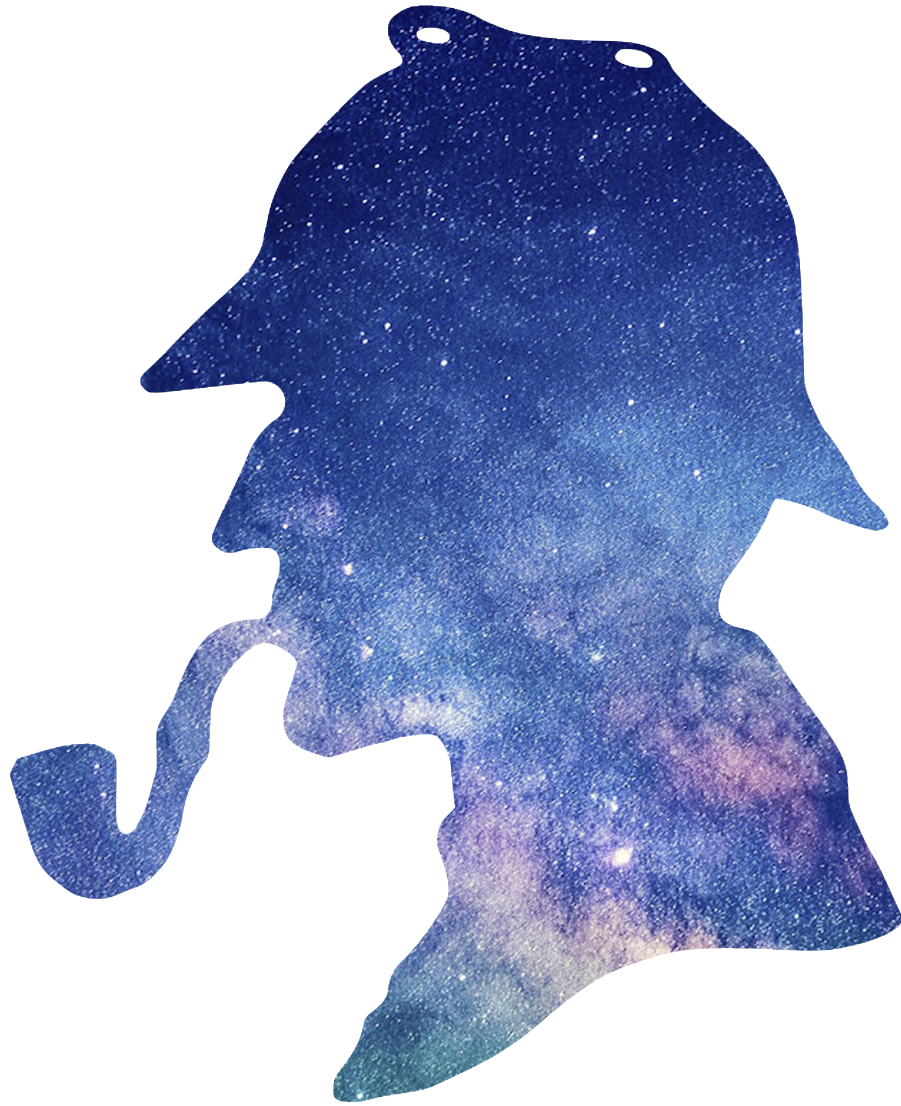
The SHERLOCK pipeline
The SHERLOCK (Searching for Hints of Exoplanets fRom Lightcurves Of spaCe-based seeKers) is a versatile open-source code to explore Kepler, K2 and TESS data in the search for exoplanets.
Main Developers: Pozuelos & Dévora-Pajares

MATRIX-TK
The MATRIX-TK (Multi-phAse Transits Recovery from Injected eXoplanets ToolKit) is a Python package prepared for the astronomical community interested in running exoplanet transits injection and recovery experiments on any light curve to test the planet detectability.
Main Developers: Dévora-Pajares & Pozuelos
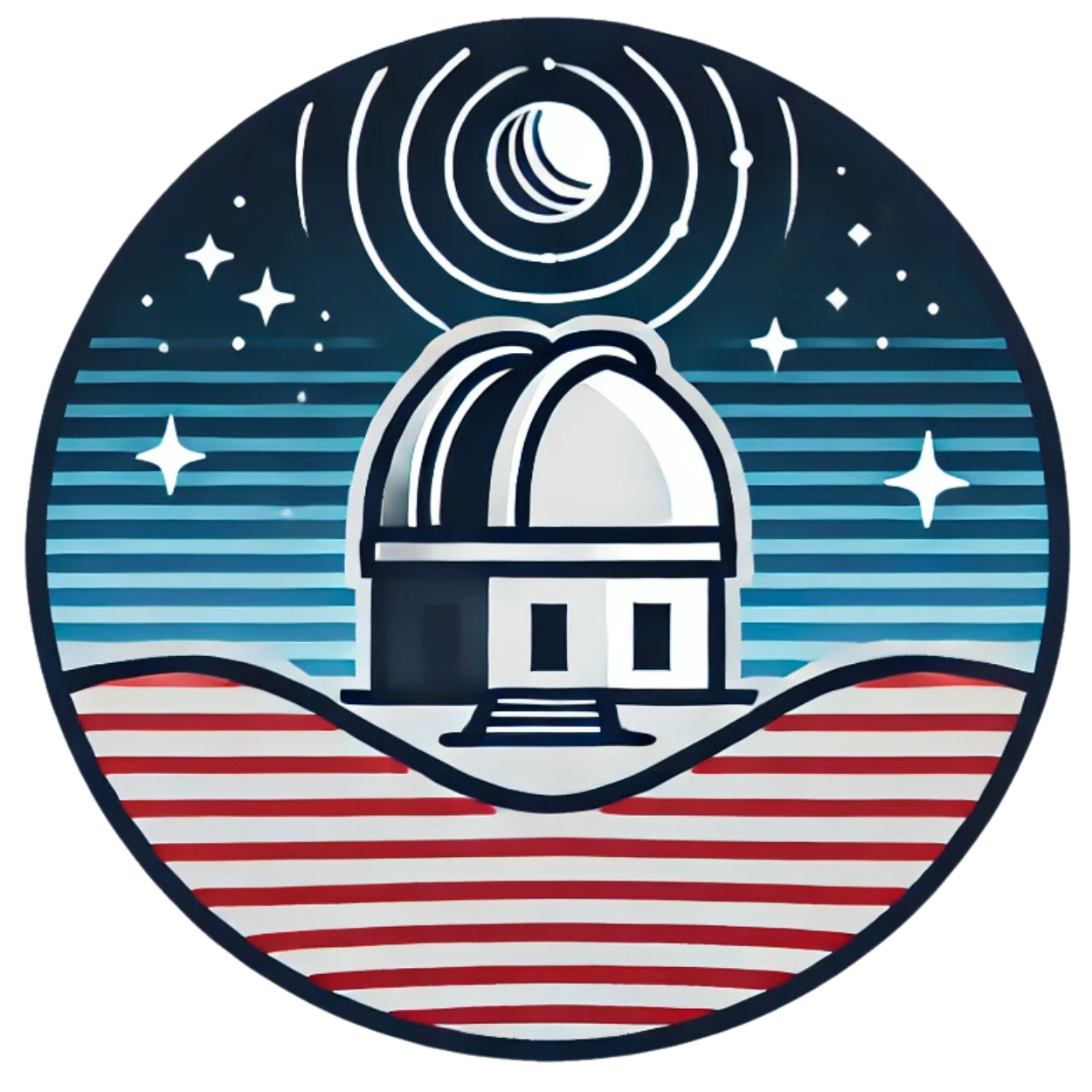
RV-X
RV-X (Radial Velocity eXplorer) is a user-friendly Python package for simulating radial velocities and exploring detection limits for searching and characterizing exoplanets.
Main Developers: Pozuelos
Outreach activities

"It is our duty, as scientists, to make science understandable to those who do not practice it. When we share science, we make the world a more enlightened place"(Richard Feynman)
I am strongly dedicated to disseminating and popularizing scientific knowledge. Among many others activities in this regard, I have conducted more than 20 educational talks for three- and four-year-old scholars at local Andalusia schools to introduce universe-related topics. Also, I participated in several editions of the "A Day with a Scientist" program of the University of Liège (Belgium), where I hosted a group of adolescents to spark scientific interest among them. I am an active member of CEBE (Científicos Españoles en Bélgica), where, thanks to the Scholarships, Agreements and Collaborations Committee, we have facilitated mobility grants for about 40 Spanish students to join research groups in Belgium since 2018. Moreover, CEBE is a highly active non-profit association that organizes numerous 'Science and Pintjes' events to bring the latest scientific findings to the general public in a relaxed and friendly environment. It also organizes webinars and workshops to foster personal and professional growth. Additionally, CEBE actively engages in science policy and diplomacy, promoting the intersection of science and international relations through initiatives that strengthen collaboration among Spanish and international scientific communities. I have participated in over a dozen national and international podcast and radio interviews focused on science, such as Princio de Incertidumbre, Ciencia Abierta, Bruselas con Ñ, Blue Dot, and Inverstigadores por el Mundo, among others. I engaged in live discussions about science, such as at the Wallonian Day Festival presenting "Lieja y los Exoplanetas" (Casa Valonia-Belgiam embassy, Madrid in 2019) and in televised shows such as La Guinda in 2023. I also contributed to a TV documentaries on exoplanets broadcasted on Canal Sur entitled "Exoplanetas, en busca de nuevos mundos" (ConCiencia 2023) and "WASP-193b, el exoplaneta algodón de azúcar" (ConCiencia 2024). I also have written outreach articles such as "¿De dónde viene el agua de los océanos de la Tierra?" published by the Muy Interesante magazine, among others. Some of my recent outreach activities are the colloquium about exoplanets in the context of the Melancholia movie organized by the Círculo de Bellas Artes and the CNIO (April 2024, Madrid) and the talks "Más allá del sistema solar: el fascinante universo de los exoplanetas" as part of the Lucas Lara seminars organized by the Instituto de Astrofísica de Andalucía-CSIC (June 2024, Granada), "Exoplanetas mundos más allá de nuestra imaginación" conducted during the XVI Reunión Científica de la Sociedad Española de Astronomía (July 2024, Granada) and the "Viaje a los exoplanetas más raros del Universo" presented during La Noche Europea de l@s Investigador@s (September 2024, Granada). I also participated as a tutor in the "X Curso de Astrofísica: el estudio del Universo variable", organized by the Universities of Zaragoza and Teruel, with a talk entitled "El arte de descubrir exoplanetas" (July 2024). In 2025, I participated as a tutor in the "II Curso al profesorado CESAR 24-25" (February 2025). I also delivered public talks such as at the Ateneo Nebrisense (Lebrija) entitled "Mundos Lejanos: ¿estamos solos en el cosmos?" (February 2025), and "¿Estamos solos en el universo? En busca de mundos habitables más allá del Sistema Solar" as part of the Lucas Lara seminars organized by the Instituto de Astrofísica de Andalucía-CSIC (June 2025, Granada). I contributed to the TV documentary "Horizontes de Luz" (episode 4). In addition, I am involved in a science outreach project partially funded by FECYT (PI: Sara Cazzoli) in collaboration with the Nauta Teatro company, using puppets, called "Clementina y los planetas", which is already scheduled to perform in several theaters across Spain during the 2026 season.
I am always available to join outreach activities at any level. I am truly passionate about this and consider it an essential part of my work as a scientist. Please feel free to reach out if you’re interested in organizing any kind of activity!
